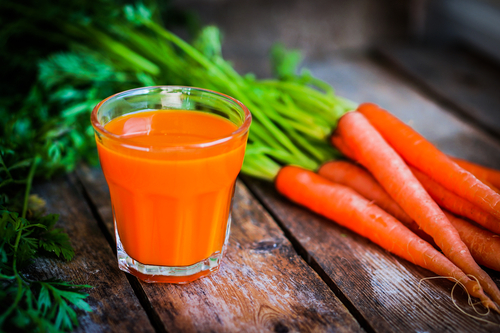Short answer
Carrot juice is very good for you. It’s rich in fiber, beta-carotene and other nutrients and can help protect eye and brain health, reduce your risk of heart disease and even fight cancer.
Recommended Alternative
Long answer
It’s no surprise that carrots have some pretty amazing health benefits—most of us have been told to eat more of them since we were little! The carrot is a versatile root vegetable that can be grown (in some shape, color or form) all over the world. Carrots are rich in vitamin A, which helps protect your eye health. Additionally, phosphorous, calcium and magnesium are plentiful in carrots and help support strong, healthy bones and central nervous system.
And believe it or not, carrot juice is actually healthier for you than raw carrots. Here’s why: a cup of carrot juice is about 236 grams, which is approximately three times the weight of one raw carrot. It’s difficult to eat three raw carrots in a sitting, so one cup of carrot gets you considerably more nutrients in a single fell swoop.
When it comes to macronutrients, one cup of carrot juice has just under 100 calories with 2.24 grams of protein and 1.9 grams of fiber. A raw carrot contains about one-third the amount of calories and protein, but it does offer a full two grams of fiber. It’s also important to note that carrot juice contains more natural sugar—just over nine grams. A raw carrot only has about 3.4 grams of natural sugar, so if you’re trying to control your weight or blood sugar, a raw carrot might be a better option.
In terms of nutrients, carrot juice is richer in antioxidants, vitamins, and minerals than a raw carrot. It contains an impressive three times the daily recommended intake of vitamin A and fulfills about a quarter of the requirements for vitamin C and E. These antioxidants are important because they help your body fight cell-damaging free radicals, which can cause premature aging, heart disease, cancer, Alzheimer’s disease and other illnesses.
In fact, a 2012 study published in the Journal of Medicinal Food shared stunning evidence that carrot juice extracts may be effective in treating certain types of cancers. This is largely due to the beta carotene and polyacetylene antioxidants found in carrots, which are bioactive chemicals. In the study, cancer cell growth was inhibited when leukemia cell lines were treated with the extracts.
The benefits of carrot juice are abundant—but if you decide to add it to your diet, there are certain precautions you should take. For instance, opt for organic carrots whenever possible. Because, as previously mentioned, drinking carrot juice packs about three times the potency of a raw carrot. So if those carrots do contain pesticide residue, you may be consuming a high dose of these dangerous chemicals.
Possible short-term side effects
- increased blood sugar

Benefits
- protects eye, brain, skin health
- reduces risk of heart disease
- promotes immune system health
- reduces risk of cancer
- 3 times the nutrient density as raw carrots
Our Wellness Pick (what is this?)
Organic Juice Blend
- Rich in nutrients
- 100% organic ingredients
- No added sugars
- Non-GMO product
 Approved by
Approved by 















